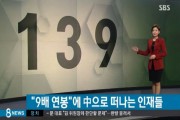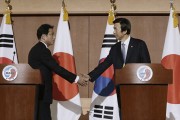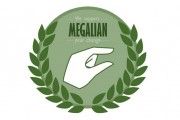Article from Asia Economy:
Korea’s gender equality level is among the lowest in the world
According to the report about gender equality from the Swiss non-profit think tank World Economic Forum (WEF), Korea ranked among the lowest countries.
According to Bloomberg News, the WEF’s Global Gender Gap Report 2014 which was released on the 28th, ranked Korea at 117th and Japan at 104th out of 142 countries. Korea’s ranking dropped six places from a ranking of 111th last year. Most countries that fell behind Korea were from Africa.
The WEF quantified gender gap in the categories of Economic Participation and Opportunity, Educational Attainment, Health and Survival, and Political Empowerment.
Northern European countries such as Iceland, Finland, Norway, Sweden and Denmark were ranked in the top 5. The highly ranked countries were not necessarily developed ones. Nicaragua, Rwanda, and the Philippines were ranked at 6th, 7th and 9th, respectively, while the UK was ranked at 26th. China and the US were ranked at 87th and 20th respectively.
The WEF pointed out that compared to the 2005 survey, gender equality has improved in 105 countries while the gap has widened in six countries such as Sri Lanka.
Comments from Naver:
bslo****:
Reverse discrimination is worse these days…
anfl****:
The survey is right because men are the recipients of reverse discrimination.
lemo****:
Yet another article for a gender war, ke ke ke.
duqw****:
Of course. It is unconstitutional to have female enlisted soldiers but it is okay to have female officers. Does that make sense?
dpeb****:
It must mean distorted equality.
stan****:
Boss: Miss, please get water for our guest.
Woman: I didn’t come here to do that kind of work, you know?
Boss: Mister, please get water for our guest.
Man: Yes, sir.
Boss: Miss, please refill the water barrel.
Woman: I didn’t come here to do that kind of work, you know?
Boss: Mister, please refill the water barrel.
Man: Yes, sir.
Boss: Mister, you are getting promoted this time.
Woman: Are you discriminating against me because I’m a woman?
pon0****:
I’m a part-time worker at Everland. Men do all the work while women act like pretty folding screens. But we get paid the same hourly wage…
rhfe****:
It is all because of the Ministry of Women.
jyh0****:
They mean the gender gap is big in Korea because men are discriminated against, right?
rhak****:
Although women don’t have to serve in the military for 2 years, it is right for them to do voluntary work for the country. Lack of care givers is such a problem these days. What if it is mandatory for women to work as care givers for 2 years? Normally, it costs 100,000 won to hire a care giver for a day and there are not enough of them at the hospitals. The cost is a huge burden for the patient’s family but it is hard for them to quit their job to take care of the patient by themselves. This problem can be solved if we implement mandatory 2-year care giving service. It is the best to legally demand young Korean women do it on the wage of a soldiers, bed and board.
For more insights about the WEF’s report, additional reading is provided below. Amid many reports that only delivered the given rankings, there were also ones that looked into the report’s methodology and caveats. It has also been pointed out that Korea fared much better in the UN Development Program’s Gender Inequality Index (GII) where Korea was ranked at 17th out of 187 countries in 2013, which has drastically different methodologies used in different indices.
Article from Donga (Dec. 2013):
[Opinion] Korea’s gender equality is ranked at 111th in the world?
Every time the World Economic Forum publishes the Global Gender Gap Report, Korean society experiences unnecessary drama through gender discrimination debates. Recently, the WEF reported that Korea’s gender gap index was ranked low at 111th out of 136 countries. According to their reports, Korea’s ranking has decreased from 104th in 2010 to 107th in 2011, 108th in 2012 and 111th in 2013.
However, are these results accurate? Is the level of gender equality in Korea worse than in countries such as India (101th) or Burkina Faso (103rd)? For example, there is an index named “Enrollment in tertiary education” among the subindices where Korea was ranked very low. According to the report from 2013, Korea’s enrollment rate for females was 85% and that for males was 115%, resulting in a subindex ranking of 108th. It may seem Korean women are disadvantaged when it comes to receiving university education. However, that is a false perception. The index counts the percentage of college students within 5 years after their graduation from high school.
Most Korean male students do their military service in the middle of their university education. Our statistics count university students serving in the military as enrolled students. Therefore, the enrollment rate for Korean males is always supposed to be much higher than that for Korean females. The resulting index is due to such absurd statistics which has nothing to do with gender discrimination.
This is a fact that has been confirmed by a staff member at the WEF, Canana’s UNESCO statistics expert and our statistics expert. The Korean expert knew the problem but thought there was no other way.
There is another problem. The index only counts the gap between genders in each country. Let’s say 90% of women go to university in country A and only 50% of women do so in country B. You would think that country A’s gender equality level would be higher and more desirable in a general sense. However, if 95% of men in country A go to university and 51% of men do so in country B, the index says gender equality regarding this category is much better achieved in country B because the index only cares about the relative gender gap. [90/95 < 50/51] Because of this methodology, for “Enrollment in primary education”, India is ranked 1st with 93% for both genders while Korea is ranked low at 86th with 98% for females and 99% for males just because the rate for males is 1% higher [even though Korea’s situation is more desirable in a general sense].
The Ministry of Women and Korean women’s rights groups should be willing to correct misunderstandings about such statistics, but it seems they are pleasantly exploiting the opportunity.
A current affairs program called “Fact Check” on JTBC also pointed out the aforementioned misunderstandings. For example, in the category of literacy, Lesotho was ranked at the top with 85% for females and 66% for males, which is a reflection of the country’s particular economic situation. Even some countries with 100% literacy rates for both genders were ranked much lower in the index. In this case, obviously, a higher ranking does not indicate a more desirable situation. While the program acknowledged Korea was ranked unrealistically low in the Global Gender Gap Index because of the methodology, they also emphasized that even if misleading indices were ignored, Korea has a long way to go when it comes to women’s economic participation. For instance, the percentage of female senior managers at listed companies is considered extremely low.







